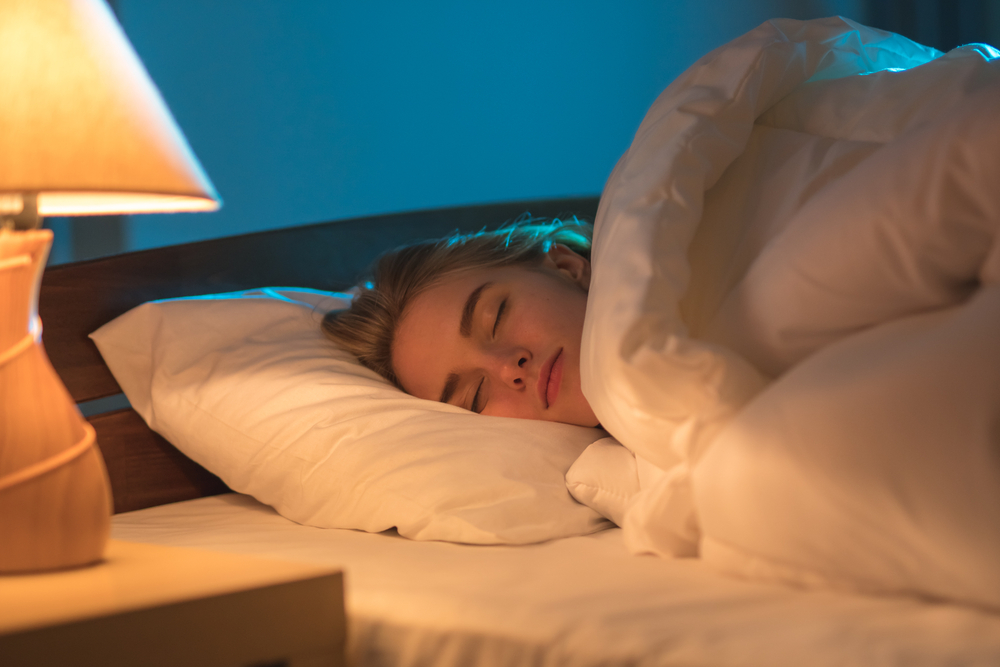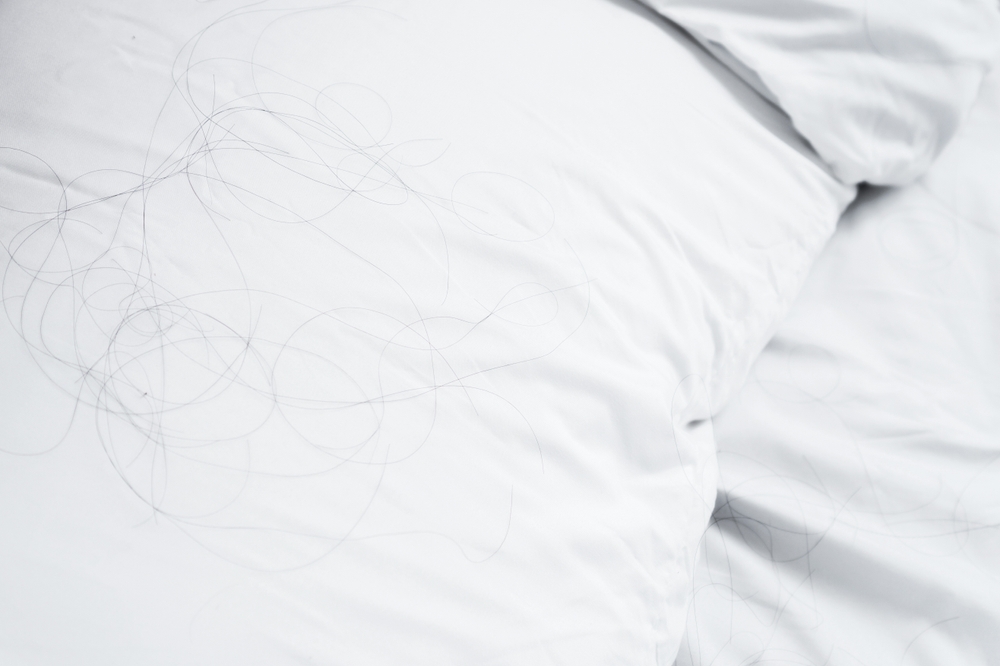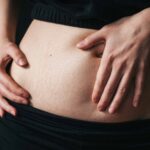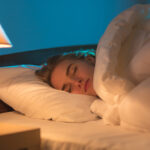An alarming question has garnered considerable attention lately: “Can lack of sleep cause hair loss?” This intriguing query piques our interest and beckons us to delve deeper into sleep’s essential role in our overall well-being, particularly regarding hair health. Indeed, sleep deprivation might be an overlooked yet significant cause of hair loss that most people aren’t aware of.
The Significance of Sleep in Hair Growth
Our body doesn’t merely “shut down” during sleep; it’s a complex, active process where our body carries out multiple critical functions. Among these functions is the rejuvenation of various body cells, including those in our hair follicles. During deep sleep, blood flow toward the skin increases, providing essential nutrients to our hair follicles. This increase in nutrients aids hair growth and keeps the hair follicles healthy.
Additionally, the body produces growth hormones during the stages of deep sleep. These hormones are crucial for cell reproduction and growth, affecting various body tissues, including our hair. The question then arises, if sleep plays such a critical role in hair growth, can a lack of it lead to hair loss?
The Connection between Sleep Deprivation and Hair Loss: An Unseen Relation
Our body perceives chronic sleep deprivation as a form of unrelenting stress. Researchers have found that prolonged stress can trigger changes in our body, causing hair follicles to enter the telogen or the shedding phase prematurely. This abnormal shift can lead to significant hair loss over time.

Sleep deprivation also disturbs the balance of hormones in the body, including the ones that regulate hair growth and health. For instance, lack of sleep can increase cortisol production, the stress hormone. High cortisol levels may cause inflammation, potentially damaging hair follicles and causing hair loss.
Hormones, Sleep, and Their Unraveled Connection
 Understanding that our sleep patterns significantly impact our body’s hormone production is essential. Decreased sleep quality or quantity can disturb this delicate balance, affecting various bodily functions, including hair growth and health. The increase in cortisol levels due to sleep deprivation can lead to inflammation and damage to hair follicles, subsequently leading to hair loss.
Understanding that our sleep patterns significantly impact our body’s hormone production is essential. Decreased sleep quality or quantity can disturb this delicate balance, affecting various bodily functions, including hair growth and health. The increase in cortisol levels due to sleep deprivation can lead to inflammation and damage to hair follicles, subsequently leading to hair loss.
Can Enhanced Sleep Reverse Hair Loss?
While improving sleep quality and quantity is beneficial for overall health, it might not necessarily reverse hair loss, especially in genetic or age-related hair loss cases. However, better sleep can undoubtedly enhance the overall health of your hair, reducing breakage and improving shine and texture.
The Influence of Sleep on Stress Levels
Elevated stress levels from poor sleep quality can lead to numerous health conditions, including alopecia or hair thinning. As our stress levels increase, so do inflammation and hormone imbalances, disrupting the natural cycle of hair growth and shedding. Thus, managing stress through good sleep is an indirect but effective way to maintain hair health.
Proactive Measures to Boost Sleep Quality and Prevent Hair Fall
Suppose we understand the significant link between sleep and hair health. In that case, the next logical step is to explore some proactive measures that we can adopt to enhance our sleep quality and, in turn, potentially prevent hair fall.
Establish a Consistent Sleep Schedule
Our body has an internal clock, the circadian rhythm, which regulates our sleep-wake cycle. Sticking to a regular sleep schedule can align our body with this internal clock, leading to better sleep quality.
Maintain a Sleep-Conducive Environment
A dark, quiet, and relaxed environment can significantly enhance sleep quality. Dim the lights and lower the temperature of your bedroom to make it conducive for sleep.
Limit Daytime Naps
While napping during the day is okay, long or irregular naps can disrupt your sleep pattern. Limit your naps to 30 minutes, and try not to rest late in the day.
Reading: A Bedtime Ritual to Combat Sleep Deprivation and Hair Loss
Reading a book, taking a warm bath, or practicing relaxation exercises can ease the transition between wakefulness and sleepiness.
Limit Exposure to Electronic Devices before Bedtime
The light emitted by electronic devices can interfere with your sleep. Try to switch off these devices at least an hour before bedtime.
Limit Consumption of Caffeine and Alcohol
Caffeine and alcohol can interfere with your sleep. Avoid consuming these substances at least 4-6 hours before bedtime.
Include Physical Activities in Your Daily Routine
Regular physical activity can help you sleep better. However, avoid being active too close to bedtime as it might interfere with your sleep.
Remember, improving your sleep quality doesn’t mean fewer hair loss chances. It signifies an overall improvement in your health, leading to a more vibrant and energetic you!
In addition to these sleep hygiene practices, consider adding hair loss products like our Hair Loss Shampoo, Hair Growth Serum, Hair Vitamins, and Mesotherapy to your hair care routine. Check out our shop for the entire range of products aimed at tackling hair loss effectively. Remember, a good night’s sleep and the proper hair care regimen can help you enjoy healthier, stronger hair.
Sources:
- Lack of Sleep and Hair Loss
- Do Your Sleeping Habits Affect Your Hair Loss?
- Can Lack of Sleep Cause Hair Loss?
- Can Lack of Sleep Cause Hair Loss?
- Is Lack of Sleep one of your Hair Fall Reasons?



